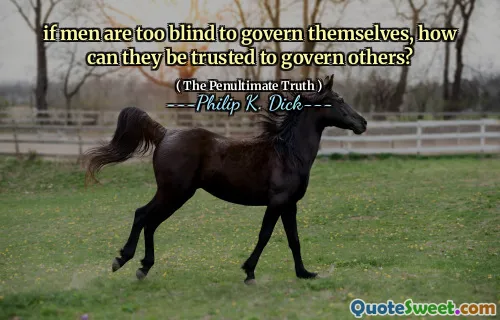
if men are too blind to govern themselves, how can they be trusted to govern others?
In Philip K. Dick's "The Penultimate Truth," the author explores the complexities of human governance and self-awareness. The quote, "if men are too blind to govern themselves, how can they be trusted to govern others?" suggests that individuals often lack the insight required to manage their own lives effectively. This raises questions about the legitimacy and competence of those in power, as it challenges the ability of leaders to make sound decisions for others when they struggle with personal governance.
This thought-provoking statement reflects a broader theme in the book, where trust in authority is scrutinized. Dick's narrative implies that flawed self-governance can lead to disastrous decisions on a larger scale, highlighting a fundamental paradox in societal structures. Ultimately, he urges readers to consider the implications of blind leadership and the importance of self-awareness in the quest for effective governance.







